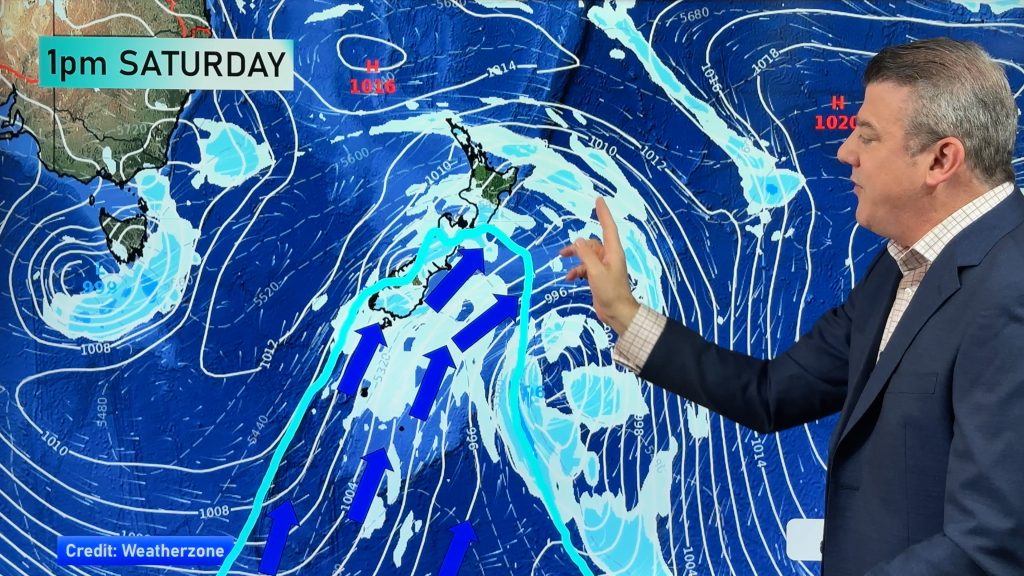
> From the WeatherWatch archives
With every passing hour and every passing day, the oil spill continues to grow and affect the ecosystem on the Gulf Coast. Tonight, Larry King looks at the effectiveness of responses to the oil spill. “Larry King Live,” .
Nearly two weeks after an explosion aboard an oil rig caused a leak from an undersea oil well off Louisiana, the impact is just beginning to unfold.
Though the widening pool of oil remained offshore Monday, it was already a presence for some coastal areas. John Kelly, administrator of Gulfport, Mississippi, said he had been able to smell it since Friday.
“I got $3 million worth of boats sitting here,” said Capt. Louis Skrmetta, who ferries tourists from Gulfport to the state’s pristine barrier islands. “What am I going to do with them?”
BP’s ruptured undersea well continues to spew about 210,000 gallons — or 5,000 barrels — of crude per day into the Gulf of Mexico. Efforts to contain or curtail the spill have been unsuccessful.
The sheen extends up to 60 miles across and threatens the coasts of Louisiana, Mississippi and Alabama, as well as the Florida Panhandle, according to the National Oceanic and Atmospheric Administration. That’s an area nearly as large as the state of Delaware. The slick was nine miles off the Louisiana coast Monday, said Adm. Thad Allen, commandant of the U.S. Coast Guard and incident commander.
BP chief executive Tony Hayward vowed that the oil giant would “absolutely be paying for the cleanup operation” of the oil leak in the Gulf of Mexico.
“Where legitimate claims are made, we will be good for them,” he told NPR’s “Morning Edition.”
The U.S. government was leaving little to chance. Attorney General Eric Holder said Monday that Justice Department employees were in the Gulf region “to ensure that BP is held liable.”
Allen said BP “is the responsible party” and “will bear all the costs” of the cleanup.
Still, the promises failed to quell the fears. “I hope we can weather the storm,” said Keith Delcambre, owner of seafood market Bozo’s in Pascagoula, Mississippi.
He said the nature of the current disaster could exact more of a toll on seafood than Hurricane Katrina, which savaged the Gulf Coast in August 2005. “We weathered Katrina, but shrimp after Katrina was good,” he said. “Seafood after Katrina was good. With all the oil out there, I don’t know what to expect. This is brand new.”
In Gulfport, officials worried that a drop in tourism from the slick would chill the city’s post-Katrina rebound, which includes half a billion dollars in new construction, $30 million of which has been spent on the harbor.
“This could not have happened at a worse time in our history,” Kelly, the city’s administrator, said.
Katrina left equipment operator Daniel Schepens out of work for a month, but the oil slick could prove worse, he said. “The warehouses are empty. No trucks, no imports, no exports.”
“If it threatens the commercial sea lanes, that’s a concern, because if ships don’t come in and ships aren’t able to go out, that stops commerce,” said Donald Allee, CEO of the Mississippi State Port Authority.
For now, the harbor is being used as a loading point for hundreds of miles of booms that are intended to defend against the slick’s arrival.
But the booms may not protect the coast any more than the levees protected New Orleans during Katrina: Rough seas have already broken apart some of the booms.
Meanwhile, Florida Gov. Charlie Crist on Monday extended a state of emergency to 13 coastal counties in his state and said he might extend it to two more on Tuesday.
He had issued an emergency declaration last week for six counties on the western end of the Florida Panhandle; Monday’s declaration added the rest of the Panhandle, and counties on the Gulf Coast of the main Florida peninsula as far south as Sarasota.
“In the event that the oil does come to our shores, I want us to be ahead of it as much as humanly possible,” he told reporters.
Preparations continue on strategies to stop the leak, though each plan has drawbacks. One plan is to lower a dome over the wellhead next week to capture the spewing oil, said Florida Secretary of Environmental Protection Michael Sole. “That would stop the flow — if successful,” he said. “Unfortunately, it’s never been tried at 5,000 feet below the surface of the water.”
BP also is having a contractor drill a relief well that would allow workers to plug the first well.
“Unfortunately, that’s a two- to three-month operation,” Sole said.
Interior Secretary Ken Salazar, Homeland Security Secretary Janet Napolitano and other Obama White House officials met Monday afternoon with Hayward and BP America President Lamar McKay to discuss the response efforts.
On Sunday, federal officials banned fishing for at least 10 days in the northern Gulf of Mexico from the mouth of the Mississippi River in Louisiana to waters off Florida’s Pensacola Bay. The Gulf Coast’s commercial fishing industry brings in about $2.4 billion to the region.
The spill cast a pall over the annual boat blessing ceremony in St. Bernard, Louisiana, where fishermen have observed the tradition for decades to usher in the shrimp season.
On Monday, Sen. David Vitter, R-Louisiana, joined Plaquemines Parish President Billy Nungesser on a conference call with President Obama and Coast Guard officials.
Full coverage at CNN.COM
Comments
Before you add a new comment, take note this story was published on 4 May 2010.






Add new comment